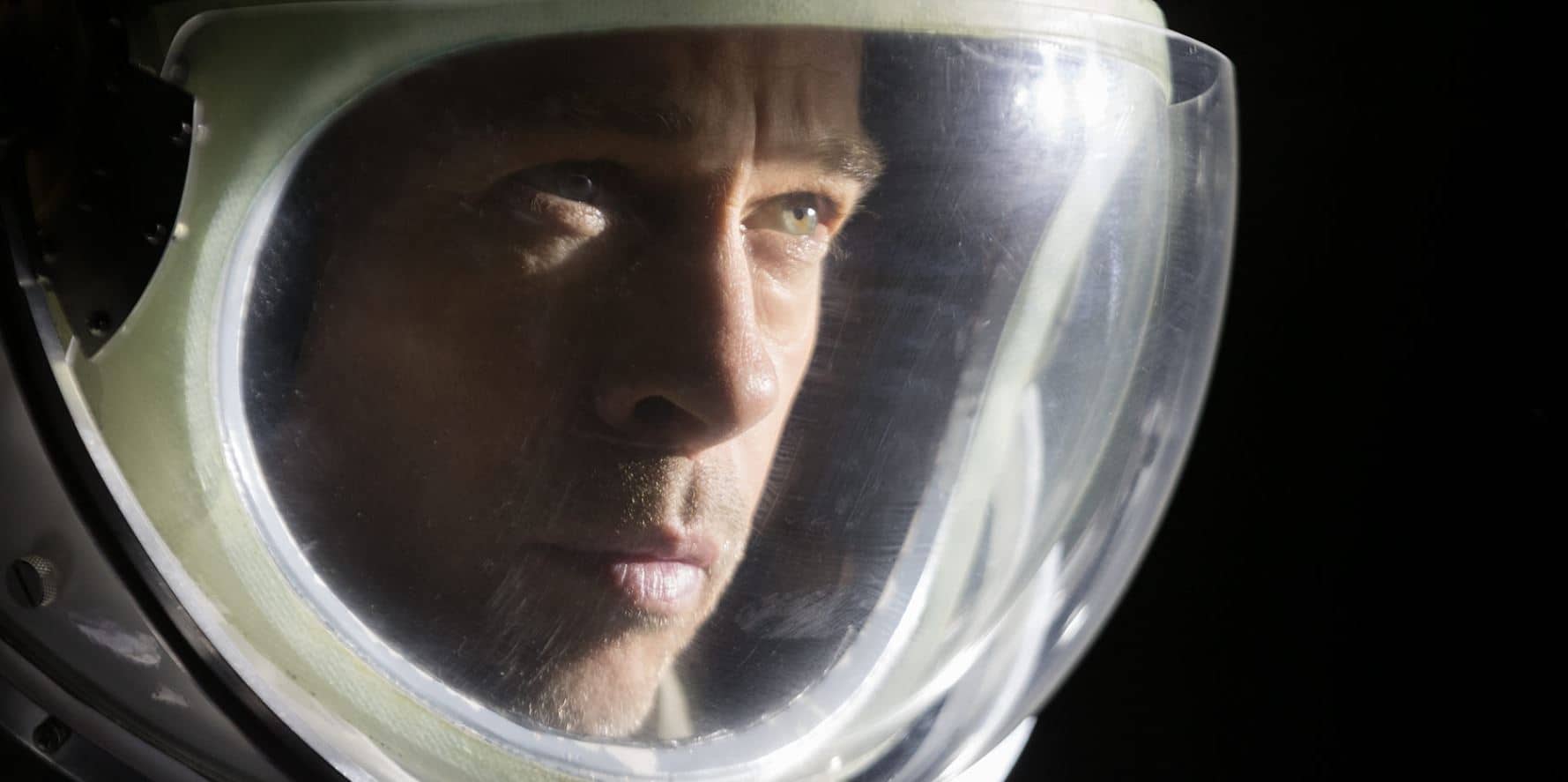“Space,” goes the old cliche, “is the final frontier.” With terrestrial limits all but explored, it comes as no great shock that filmmakers from Kubrick to Christopher Nolan to Claire Denis have time and again tested the limits of their storytelling prowess in the stars. Implicit in the infinite vacuum is the promise of better and more interesting worlds, of just societies and selfless heroes and swords (!!!) made of lasers (!!!!!). However, to immerse oneself in a new world, one must abandon the old. In his 2016 film The Lost City of Z, director James Gray examined the casual cruelties and structural brutalities that drive explorers away from their homes and families in search of something better. In Ad Astra, Gray shifts his gaze to those left behind, with disappointing results.
Major Roy McBride, played by Brad Pitt, lives in the shadow of a giant. Although himself a decorated astronaut, his father (played by Tommy Lee Jones) was the greatest spacefarer to ever live, leading expeditions to Jupiter and Saturn before disappearing soon after his son’s 16th birthday on a mission to locate intelligent alien life. 37 years later, Roy is ordered to track his father down after a mysterious power surge provides evidence of the elder McBride’s survival.
Pitt plays McBride as the quintessential soldier-scientist: courageous, insightful, equally adept at gunplay and rocketship piloting. Most importantly, McBride is a stoic, determined to weigh duty over his own emotions. This choice comes as no surprise; the defining traits of Pitt’s later-career persona are his stillness and his aura of unflappable cool. In Moneyball, Once Upon a Time…In Hollywood, and The Assassination of Jesse James by the Coward Robert Ford, he moves slowly or not at all, breaking only occasionally to crack a smirk or a snarl. Without speaking, he emits charm, menace, and melancholy, and forces his scene partners to react to him, never vice versa.
Roy McBride is no Billy Beane or Jesse James. His apparent calm is pure pretense. When provided with information about the father he both idolizes and resents, he reacts. With every fidget in his chair, clench of his jaw, twitch of an eyebrow, or half-choked sob, he betrays his fractured emotional state. It’s a restrained, monumental performance, one that ranks with the best of Pitt’s career.
However, not even Brad Pitt at his best can save James Gray and co-writer Ethan Gross from their own portentous screenplay. The film spends the bulk of its running time propelling Pitt and his assortment of underwritten companions from one unconvincing peril to another. These fellow travelers, played respectively by Donald Sutherland, Sean Blakemore, Donnie Keshawarz, and Ruth Negga, function mostly as mindless archetypes who must die in order to further alienate Major McBride from the Earth he left.
Gray’s most self-sabotaging choice is his liberal employment of voiceover. The bulk of this narration concerns McBride’s battle with his father’s legacy and his own emotional deterioration, which he hides from every other character of the film. However, Pitt’s expressive performance renders these verbalizations unnecessary. Gray also uses voiceover to explain his own visual metaphors. In one especially frustrating sequence, as an underwater Brad Pitt pulls himself towards a looming black chasm, he says, “I’m being pulled down the same dark hole” that tore his father away from the world. Ad Astra reveals the destructiveness of mindless exploration and argues that salvation can only be found in the embrace of an imperfect humanity. However, Gray’s use of voiceover undermines this thesis. Gray apparently does not trust his audience to read the anguish in Pitt’s face, or to draw connections between the thoughts and experiences of father and son. In explicitly explaining these moments, Gray robs the audience of interpersonal discovery and understanding and hinders the development of true empathy.
And so, despite its occasional brilliance, Ad Astra makes the universe feel colder and less human. It’s a failure, but Gray at least proves that the search for something grander hinders the appreciation of something that’s pretty good.
Ad Astra is playing at most major first-run cinemas, including Cobble Hill Cinema, Williamsburg Cinemas, and Nitehawk Prospect Park.
2/4 stars.
Author
Discover more from Red Hook Star-Revue
Subscribe to get the latest posts sent to your email.












